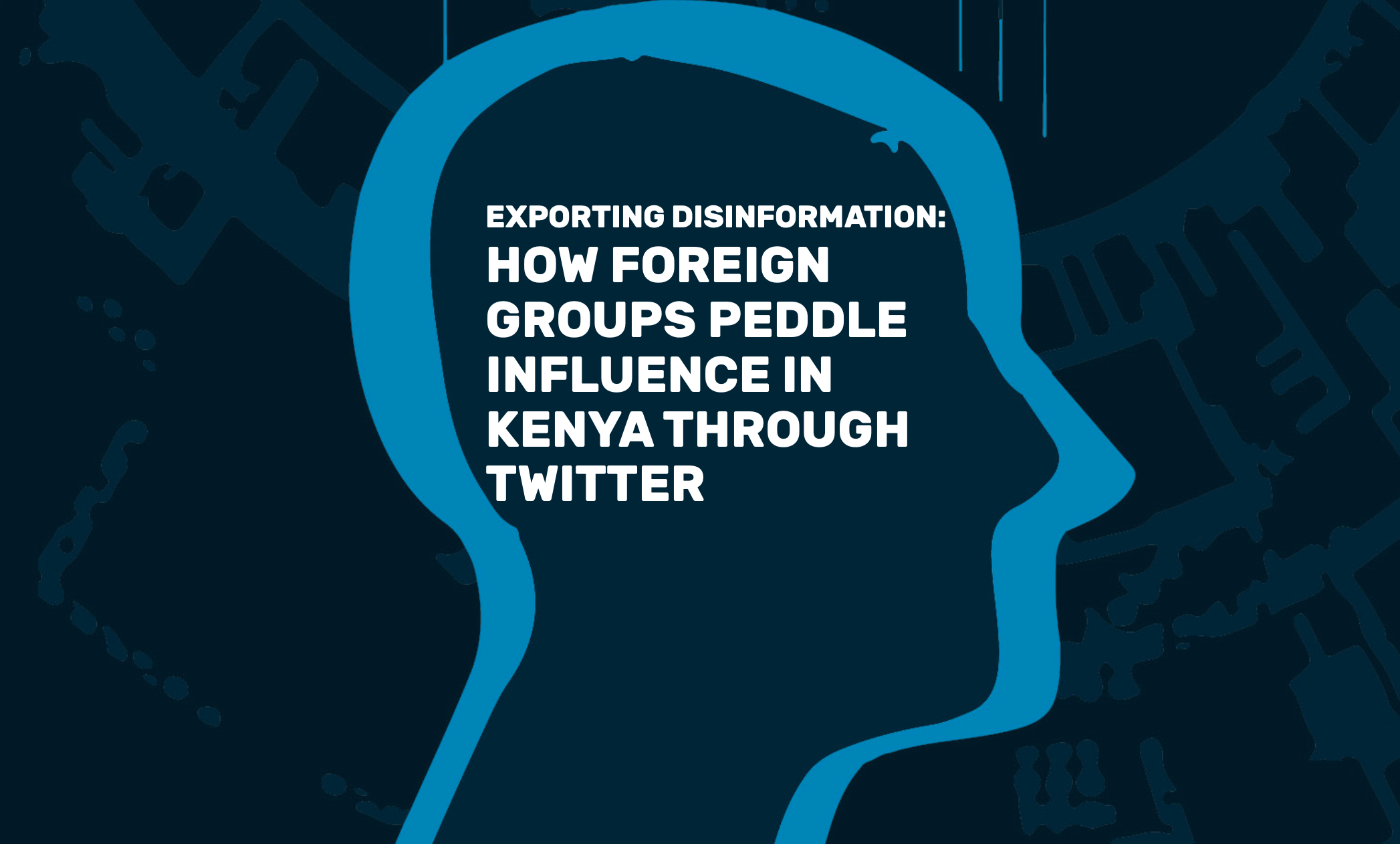
Spain-based CitizenGO appears to have spread disinformation about surrogacy, other reproductive issues in Kenya, according to Mozilla Fellow Odanga Madung
These disinformation campaigns were amplified by Twitter’s trending algorithm, reaching millions of Kenyans
(NAIROBI, KENYA | TUESDAY, FEBRUARY 22, 2022) — A right-wing group based in Spain appears to have spread disinformation about reproductive health policy in Kenya by manipulating Twitter conversations, according to new research published by Mozilla Fellow Odanga Madung.
After reviewing this research, Twitter permanently suspended more than 240 related accounts.
Madung amassed evidence that the Spanish-based organization CitizenGO pushed 10 hashtags into Twitter’s trending section in Kenya — many of which contained health disinformation — just as Kenyans debated federal bills about reproductive healthcare and surrogacy.
The research is titled “Exporting Disinformation: How Foreign Groups Peddle Influence in Kenya Through Twitter.”
Madung used Twitter’s Firehose to review content posted between 2020 and 2021. He examined a total of 20,811 tweets and identified 11 total campaigns likely fueled by CitizenGO — 10 of which were featured on Twitter’s trending section.
Madung also spoke with Twitter users in Kenya who were paid to tweet. The sources said they received money, content, and instructions from CitizenGO over WhatsApp.
These campaigns attacked Kenyan politicians and activists who advocated for the Reproductive Healthcare Bill, the Surrogacy Bill, and reproductive rights more broadly. (The bills would outlaw forced sterilizations; make prenatal, delivery, and postnatal services free to every woman in the country; and develop standards, regulations, and guidelines on assisted reproduction.)
Meanwhile, Madung determined these tweets had several markings of inauthentic, coordinated campaigns: they repeated hashtags, phrases, and memes; came from accounts that tweeted nothing but hashtags; and were carefully synchronized for certain times of day. Many of the accounts involved had also participated in previous disinformation campaigns Madung researched.
The tweets also made false and misleading claims around surrogacy and other areas of reproductive health. For example, they claimed children of surrogacy are more likely to display behavioral and emotional problems. As part of the research, Madung spoke with the African Population Health Research Center (APHRC), which debunked these claims.
Says Madung, who is based in Nairobi: “The research reveals how a right-wing European organization used Twitter to insert disinformation and inflammatory rhetoric into an important and nuanced regional conversation. It also reveals how Twitter lacks the cultural context, the staff, and the will to confront this problem.”
Twitter lacks the cultural context, the staff, and the will to confront [disinformation in Kenya].”
Odanga Madung, Mozilla Fellow
Madung adds: “This problem will only grow more severe ahead of Kenya’s 2022 federal election. These groups have made it clear that they intend to have a hand in our politics. It's crucial that Twitter addresses the problem before then.”
After reviewing the research, Twitter permanently suspended hundreds of accounts. “We are investigating the information shared with us by Mozilla Foundation and have permanently suspended more than 240 accounts under our platform manipulation and spam policy,” a Twitter spokesperson told Madung.
This new report expands on past research spearheaded by Madung in 2021. He investigated how Twitter is used to spread political disinformation and discredit journalists in Kenya. In response to this earlier research, Twitter also removed dozens of accounts responsible for coordinated disinformation.
